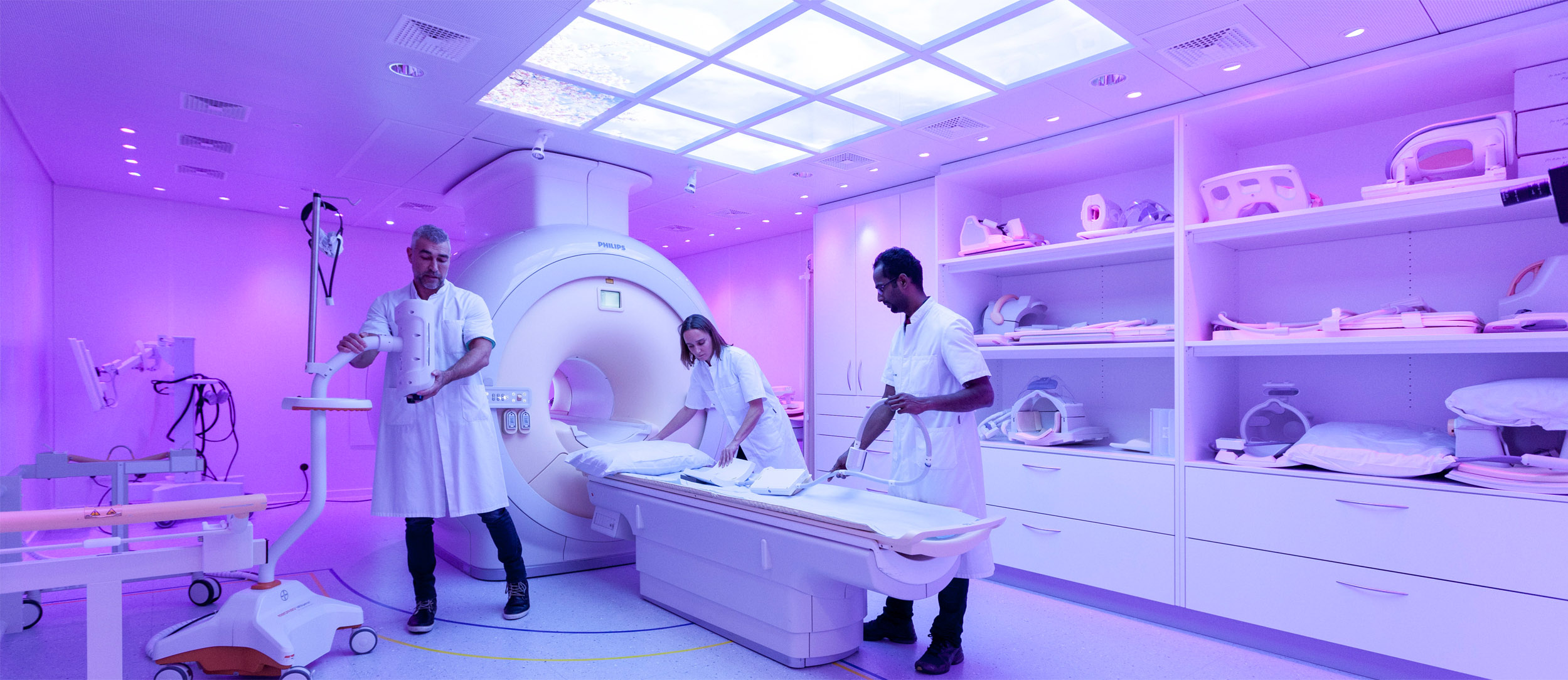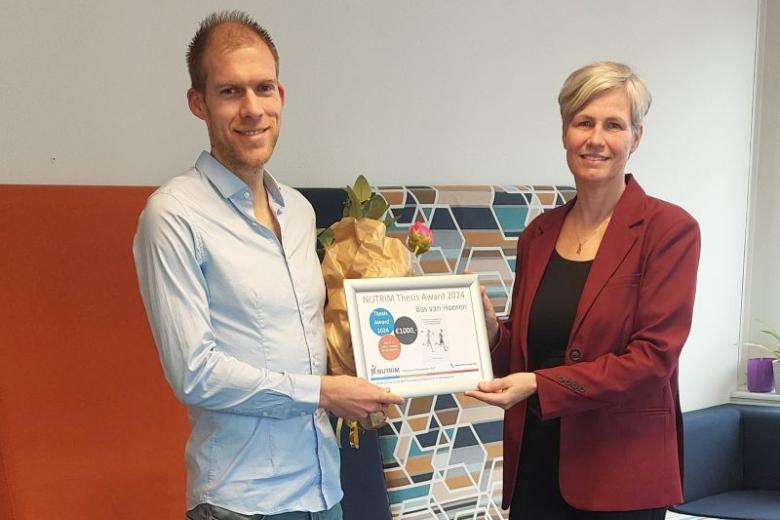Nutrition and Translational Research in Metabolism
"Healthy living across the lifespan" from prevention to disease management.
NUTRIM contributes to health maintenance and personalised medicine by unraveling lifestyle and disease-induced derangements in metabolism and by developing targeted nutritional, exercise and drug interventions. This is facilitated by a state of the art research infrastructure and close interaction between scientists, clinicians, master and PhD students.
NUTRIM's research focus and overall aim
Research into lifestyle and disease-specific factors in disease onset and progression, plays a crucial role in the pursuit of new therapeutic diagnostic methods and new forms of treatment. Therefore, NUTRIM's research focuses on the entire life cycle of people to improve preventive lifestyle strategies, current and novel treatments options, and the improvement of patient care and the patient's experience.
NUTRIM research focuses on chronic diseases, including diabetes, COPD, inflammatory bowel disease, liver disease and renal disease, and contributes to improving cancer care. Biomedical research is directly linked to clinical trials and research focusing on behavioural interventions and health promotion. A primary goal is to accelerate the translation of science to patient and population.
NUTRIM Research areas
1. Metabolic Health
The focus in Research Area 1 is to create a better mechanistic understanding of the etiology of obesity, type 2 diabetes and cardiovascular disease, which all affect global health.
Case Studies of research area 1

2. Liver & Digestive Health
Disorders studied in research area 2 include inflammatory bowel disease, liver failure, irritable bowel syndrome, cancer cachexia, cholestasis or non-alcoholic steatohepatitis.
More on liver and digestive health
Case Studies of research area 2

3. Healthy Ageing
Research in area 3 focuses on understanding the onset of disease related to age and lifestyle and to identify people with an enhanced risk for disease and (re-)hospitalisation.
Case Studies of research area 3

PhD Education
NUTRIM offers a PhD programme with high internationally recognised standards and qualified supervisors will guide you. Our ambition is to foster the academic development of young researchers such that they can develop themselves by acquiring skills and expertise. The NUTRIM PhD training offers a programme for students who aspire a broad understanding of human nutrition, metabolism and toxicology, next to outstanding research capabilities. NUTRIM PhD students are also involved in several master’s programmes in educational roles.
In its PhD programme, NUTRIM aims to meet the demand for scientists who are acquainted with novel fundamental research concepts and are equipped to optimise the translation from science to the clinic and to public health.

NUTRIM news
NUTRIM Research Stories
Contact NUTRIM
Universiteitssingel 40 6229 ER Maastricht C2.531
secretariaat-nutrim@maastrichtuniversity.nl
NUTRIM research institute is part of Maastricht University's Faculty of Health, Medicine and Life Sciences. We work in close cooperation with the Maastricht University Medical Center+.
MUMC+ is known both nationally and internationally for its focus on prevention and taking an integrated approach to health care: from prevention, promotion of good health, and basic care, to top-level clinical diagnostics and treatment. Patient safety is our top priority in all of our endeavours.
MUMC+ is part of The Netherlands Federation of University Medical Centres.








